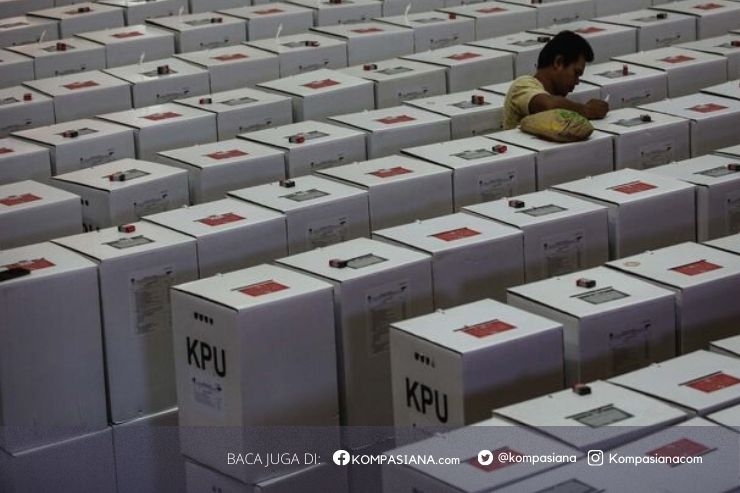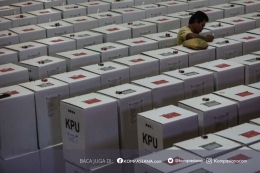The Controversy Surrounding Miftah's Resignation as the President's Special Envoy
The recent resignation of Miftah, a prominent figure in the Indonesian political landscape, from his position as
the Special Envoy to the President, has sparked a significant debate within the country. Miftah's decision to step
down from this high-profile role has raised questions and concerns among the public, academics, and political
commentators alike, as they attempt to unravel the underlying factors that led to this unexpected turn of events.
To contextualize the issue, it is important to understand the role of the Special Envoy within the Indonesian
government's structure. The position of the Special Envoy is typically reserved for individuals who possess a deep
understanding of the country's diplomatic and political landscape, and who are tasked with representing the
President's interests on a global stage. Miftah's appointment to this role was seen as a testament to his expertise
and the trust placed in him by the nation's highest executive office. However, his sudden resignation has led to
speculation and analysis of the potential reasons behind his decision.
One perspective that has emerged from the academic discourse is the notion of presidential impeachment, as
discussed in a recent article (Gunawan, 2008). The author of this article delves into the legal and constitutional
implications of the impeachment process, highlighting the grounds and procedures that can lead to the removal of
a sitting president or vice president. While the issue of Miftah's resignation does not directly involve the
impeachment of the President, the article provides a valuable framework for understanding the broader context of
power dynamics and accountability within the Indonesian political system.
Another relevant source, "Jokowi's Authoritarian Turn and Indonesia's Democratic Decline" (Power, 2018), sheds
light on the broader trends of democratic backsliding in Indonesia, particularly during the Jokowi administration.
This article suggests that the curtailment of expressive and associative freedoms, as well as the partisan
instrumentalisation of constitutionally apolitical security and law enforcement institutions, have contributed to a
concerning erosion of democratic norms and practices in the country.
While the specific reasons behind Miftah's resignation may not be directly linked to these broader trends, the
insights provided by this academic source can help to contextualize the issue within the larger framework of
Indonesia's democratic trajectory (Power, 2018).
The "The 'Floating' Ummahin the Fall of 'Ahok' in Indonesia" (Hadiz, 2018) article offers a valuable perspective
on the role of identity politics and socioeconomic factors in shaping the political landscape in Indonesia. The
author suggests that the rising influence of Islamic political movements and their alignment with oligarchic
interests have contributed to the hardening of attitudes on various moral issues (Hadiz, 2018). While the Miftah
controversy may not be directly related to these dynamics, it is important to consider the broader sociopolitical
context in which these events are unfolding.
In conclusion, the resignation of Miftah from his position as the President's Special Envoy has sparked a
significant debate and analysis within the academic and political spheres in Indonesia. By examining the relevant
sources and academic literature, it becomes clear that the Miftah controversy cannot be viewed in isolation, but
rather must be understood within the broader context of Indonesia's evolving political landscape, including the
dynamics of power, accountability, and the ongoing challenges to democratic governance (Power, 2018)
(Gunawan, 2008) (Hadiz, 2018).
The resignation of Miftah has also raised questions about the future direction of the President's administration and
its commitment to upholding democratic principles. As the country navigates these complex political and social
challenges, it will be crucial for the academic community to continue to engage in rigorous analysis and critical
examination of the events that unfold, in order to contribute to a deeper understanding of the country's democratic
trajectory.
One key aspect that emerges from the academic sources is the growing concern over the erosion of democratic
norms and practices in Indonesia (Power, 2018). The partisan instrumentalisation of constitutionally apolitical
institutions, such as the security and law enforcement agencies, raises alarm bells about the potential concentration
of power and the diminishing checks and balances within the system.
Moreover, the hardening of attitudes on moral issues, driven by the alignment between Islamic political
movements and oligarchic interests, suggests a concerning trend towards a more illiberal and intolerant form of
politics (Hadiz, 2018).
These developments, in the context of Miftah's resignation, underscore the need for a deeper understanding of the complex and multifaceted factors shaping Indonesia's political landscape. As the country grapples with these challenges, the academic community has a crucial role to play in providing rigorous analysis, evidence-based insights, and a nuanced perspective that can inform public discourse and policy decisions.







